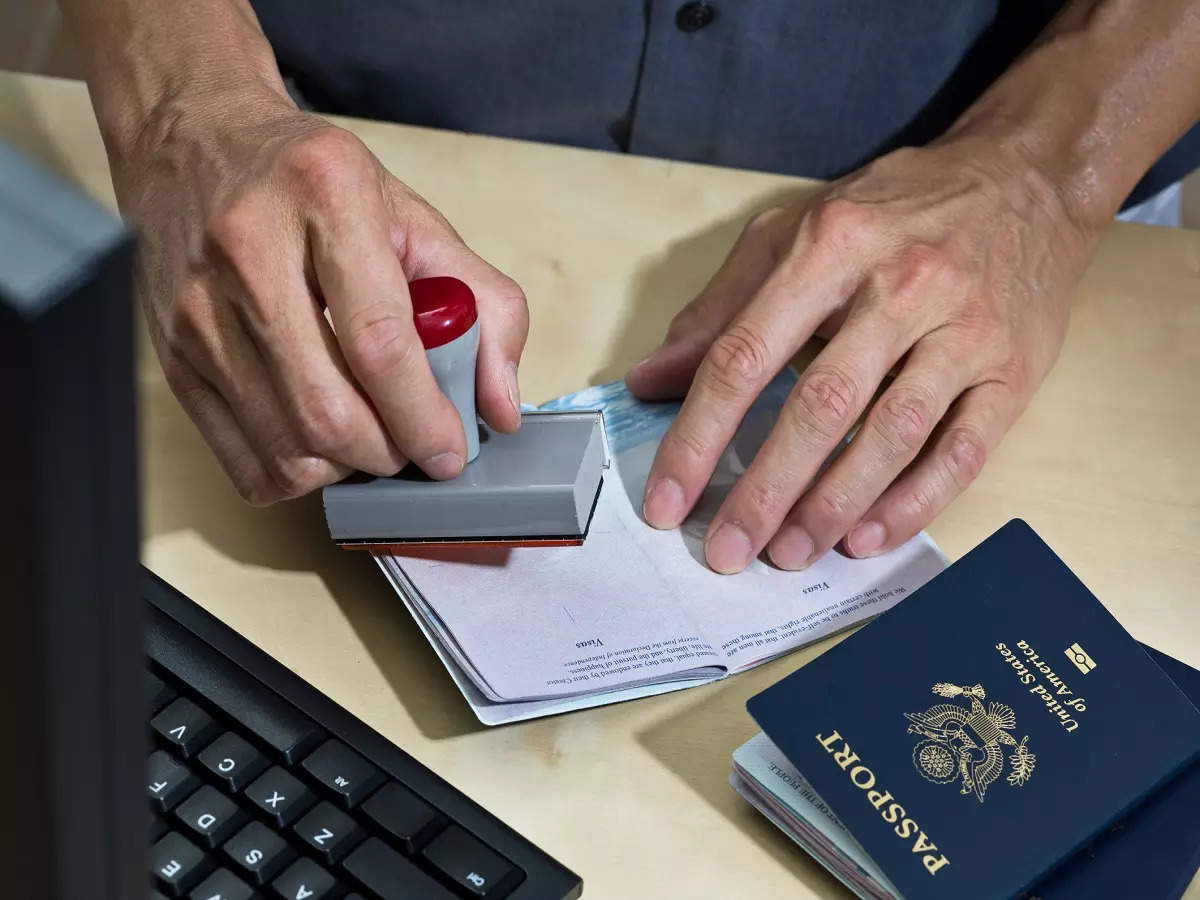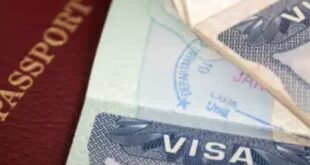[ad_1]

In the bustling world of travel, the journey doesn’t always begin at the airport. For many, it starts with a visa application – a process that can be both crucial and complex. In India, a growing tussle between tour operators, service providers, and embassies has cast a shadow over the travel landscape. ETTravelWorld deep dives into the heart of the visa issues faced by travellers in India and the escalating tensions that have resulted from the challenges at hand.
Visiting foreign shores has long been a dream for many in India, but the dream often starts with navigating the maze of visa application procedures. However, the process is not as straightforward as it seems. Behind the scenes, a brewing conflict between tour operators, service providers, and embassies has taken centre stage, threatening to mar the once-seamless passage.
As tourists plan their journeys, they must grapple with the intricate visa requirements imposed by various countries. While some embassies demand extensive documentation and proof of funds, others mandate interviews or biometric data submissions. Amidst this complexity, tour operators and service providers emerge as the intermediaries that facilitate this critical step. However, a disconnect between these entities and the embassies has led to mounting tensions and frustrations for travellers.
The heart of the conflict lies in the time-consuming and often unpredictable visa processing times. Travellers have found themselves stuck in limbo, with trip plans hanging in the balance due to delays caused by embassies’ backlogs or stringent application review processes. Tour operators and service providers, on the other hand, grapple with irate customers and operational setbacks due to circumstances beyond their control.
At the core of this issue is the delicate balance between security concerns and the ease of travel. While embassies are tasked with ensuring that visitors adhere to the regulations set by their respective countries, tour operators emphasise the need for a streamlined and efficient process that fosters a positive travel experience.
Recent developments
A lot of the visa issues in India can be attributed to the inadequate staffing at the Embassy and the large number of applications leading to extra workload for the visa consulates. Many embassies have accepted the issue and announced they are working to address the issue but a change in action will take some time.
Georg Enzweiler, Deputy Head of Mission for the German Embassy in India said that they are working to bring down the wait time for visa approvals with more workforce at its visa processing unit in Mumbai. Currently, the average wait time for a German visa in India is 8 weeks.
“Germany is the second most popular Schengen destination for Indians. Visa is an important issue for us. We are striving to get better with regard to application time. We’ve increased our staff substantially in Mumbai and the waiting time has also gone down to eight weeks now. We are doing our best to improve on this and hope to get better with time,” he said.
Looking at the statistics on the current visa situation, the US Embassy in India has revealed that the wait time and backlogs for visas have been significantly reduced. The US visa, often the most sought-after visa had a wait time of over an year some time back but recently Eric Garcetti, the United States Ambassador to India had announced that wait time for first-time tourist visa interviews has been reduced by more than 50 per cent and the Embassy is targeting to process more than 1 million visas out of India. US has currently processed more than 900,000 visa applications in 2023 till August.
The US Consulate General Mumbai in a statement released said that it has eliminated the visa backlog caused by the Covid-19 pandemic and said that the applicants can now schedule their appointments for immigrant visa interviews within the standard time frame.
A large number of visa applications to the United Kingdom come for Indian students travelling abroad for studies. The UK issued close to 500,000 sponsored study visas in June 2023, which is a rise of 23 per cent compared to the previous year, and almost a third of these were granted to Indians. The statistics also reveal that nearly 154,000 sponsored study-related visas were granted to students’ dependents.
In June 2023, the UK Home Office granted a total of 142,848 study visas to Indians, which is a significant increase of 54 per cent compared to the previous year. The grants to Indians are now seven times higher than the year ending June 2019.
Looking at the European countries, the amount of Schengen visa applications from India increased by 415 per cent in 2022, indicating a rise in travel demand. This increase led to a lowering of rejection rates, which resulted in more visas being approved. Despite this, recent information from various sources reveal that India still had the second-highest number of Schengen visa refusals globally. Over 100,000 visas were denied, resulting in an estimated loss of INR 87 crore due to cancelled trips.
Last year, Schengen countries received a total of 671, 928 visa applications last year and out of that almost 18 per cent of applicants were denied visa with rejection. The number is higher than the global average of 17.9 per cent.
Blame on travel professionals
As the tussle between these stakeholders escalates, travellers are caught in the crossfire. Escalating tensions have led to impassioned debates on various platforms, from social media to industry conferences. The inability to predict visa processing times has resulted in travellers hesitant to make concrete plans, thereby impacting the tourism ecosystem as a whole.
Starting an awareness campaign on social media, Naveen Kundu, Managing Director of EbixCash’s Travel Services in India, South East Asia & Middle East highlighted the issues faced by travel professionals in getting visa applications processed and mentioned that lack of a communication mechanism create many roadblocks.
Earlier, Kundu had addressed presidents of various travel trade associations and apprised them about the visa problems he faced for corporate travellers scheduled to travel overseas for business travel and MICE.
“Most the embassies in India don’t have a communication mechanism and repeated follow-ups are required. These countries benefit a lot from the volumes of business Indian corporates generate for them. Alongside, visa facilitation companies earn a requisite fee on every visa submission therefore, they have to step up their communication and respond with proper information. It’s disheartening that applicants don’t know till the last moment if the visa will be issued or not,” he said.
He further added that this results in huge amount of financial loss and morally travel professionals lose credibility with clients. “Corporate houses are often subjected to trauma for no fault of theirs and more often than not they end up putting the blame on travel companies, which is totally uncalled for. Let me clarify to them that every travel professional wants to have visas on time to ensure a smoother travel experience for their clients, and no one has any intention to delay any process for visas. Most are helpless or feel helpless,” Kundu said in a Facebook post.
“It is going beyond limits now, and this problem needs to be solved or else let us all go to our clients and push them to travel only in India. Once various countries, who are practically depending on Indian travellers for higher revenues realise this, they will devise and design necessary processes to facilitate this,” he added.
Long-term solution?
As India seeks to regain its tourism footing following the disruptions of the Covid-19 pandemic, resolving the visa conundrum becomes paramount. A collaborative effort between embassies, tour operators, and service providers is necessary to strike a balance that satisfies both security requirements and the travel industry’s needs.
According to Ajay Prakash, President, Travel Agents Federation of India, it is crucial to fully comprehend the current visa situation at hand, and it must be acknowledged that change is not an immediate occurrence.
Prakash also feels that a long-term solution to the visa predicament in India can be achieved by recognising the significance of the Indian market and its outbound travellers, as Indians have become significant tourism spenders, with their expenditure surpassing many other nationalities.
“I strongly advise travellers to thoroughly plan and prepare their documentation well in advance. Regarding the Schengen visa, numerous applications are being denied. It is imperative to be absolutely certain and double-check all documents, as even with everything in order, applications can still be rejected by embassies,” he said.
He also advised travel agents must also be wary of scams. “Visa scams are prevalent not only among travellers but also travel professionals. It is essential to steer clear of individuals who demand payment in exchange for expedited visa approvals. As travel experts, we must refrain from promoting or engaging in such illicit activities,” Prakash added.
Source link








